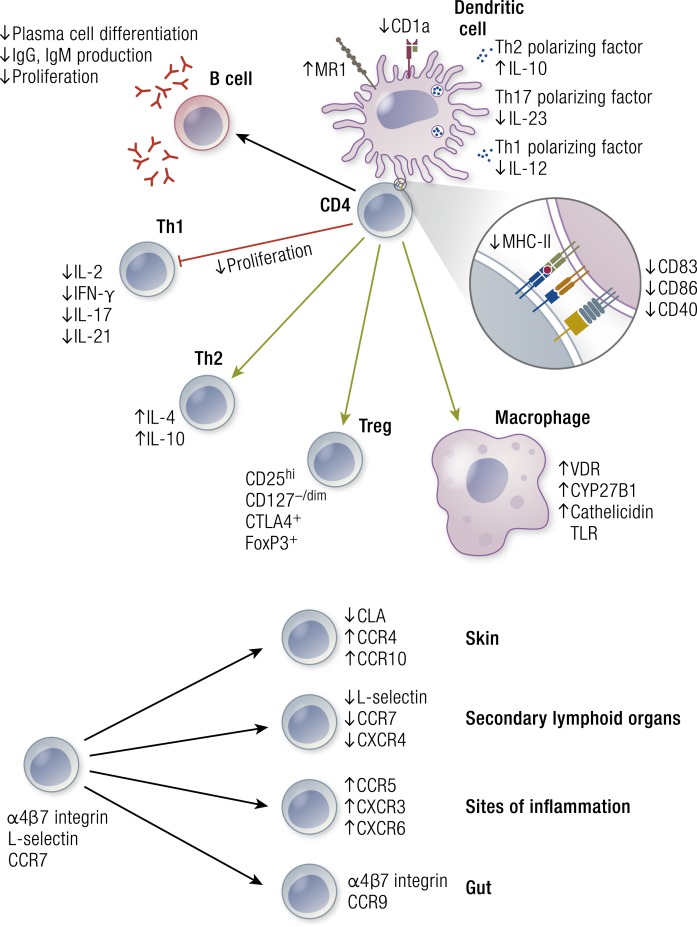Figure 5.
Vitamin D metabolism and signaling in the acquired immune system. In antigen-presenting cells (including DCs), 1,25(OH)2D3 inhibits the surface expression of major histocompatibility complex II (MHC-II)–complexed antigen and of costimulatory molecules, in addition to production of the cytokines IL-12 and IL-23, thereby indirectly shifting the polarization of T cells from a Th1 and Th17 phenotype toward a Th2 phenotype. Additionally, 1,25(OH)2D3 directly affects T cell responses by inhibiting the production of Th1 cytokines (IL-2 and IFN-γ) and Th17 cytokines (IL-17 and IL-21), as well as by stimulating Th2 cytokine production (IL-4). Moreover, 1,25(OH)2D3 favors Treg cell development via modulation of DCs and by directly targeting T cells. Finally, 1,25(OH)2D3 blocks plasma-cell differentiation, IgG and IgM production, and B cell proliferation.

